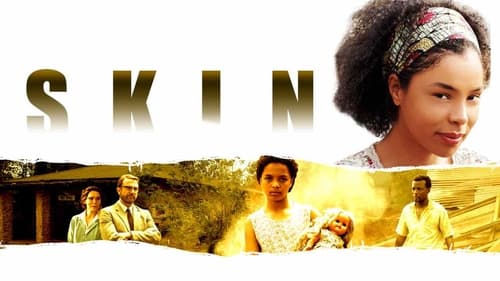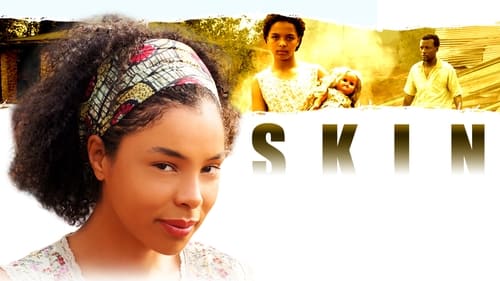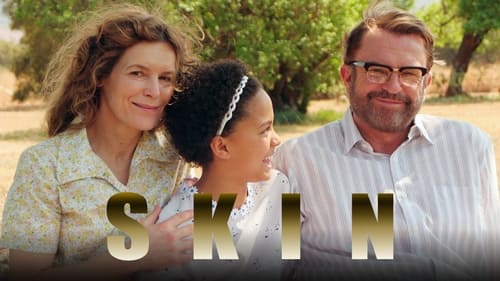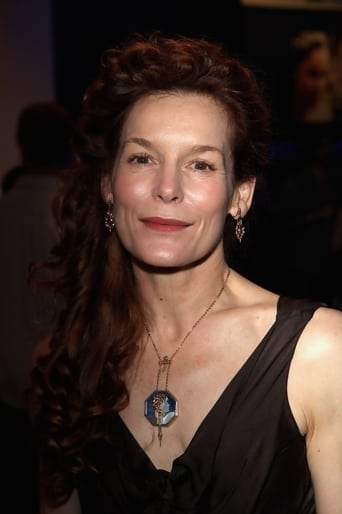Linkshoch
Wonderful Movie
Organnall
Too much about the plot just didn't add up, the writing was bad, some of the scenes were cringey and awkward,
Donald Seymour
This is one of the best movies I’ve seen in a very long time. You have to go and see this on the big screen.
Winifred
The movie is made so realistic it has a lot of that WoW feeling at the right moments and never tooo over the top. the suspense is done so well and the emotion is felt. Very well put together with the music and all.
SnoopyStyle
It's 1965 Eastern Transvaal, South Africa. Sandra Laing is the young daughter of white Afrikaner parents Abraham (Sam Neill) and Sannie Laing (Alice Krige). She is kicked out of her all-white school for her African features despite being born as white. She is reclassified as colored and Abraham overturns it in court. At 17 in 1973, she has a relationship with black Petrus which drives a rift in between her family.It's a compelling intriguing real life story. It takes a look at Apartheid from a different angle. There is a tough question at the center of the movie that is left uncertain. It does leave the movie at a disadvantage dealing with real people. Nothing is quite as clean in real life.
ray-cann
Can two white-looking people produce a darker-skinned baby?Anthony Fabian's "Skin" tells the fascinating story of Sandra Laing, a black South African woman who was born to white Afrikaner parents during apartheid in South Africa.Growing up, Sandra appears to have had a happy childhood. She does not appear to think she is different from her parents or older brother, who is also white; she resembles her family a great deal except for her skin color. When she is older, her parents send her and her brother to an exclusive school, for whites only of course. There, Sandra is finally aware that she is different. There are stares, mockery, whispers, and the assumption she does not now where Swaziland is (you'll understand this after you see the film).Her battles have just begun. She is constantly classified, unclassified, reclassified as white and colored, but Sandra has always felt white. Is she white? To someone in 2013, she would appear multiracial or even racially ambiguous, but, remember folks, this is South Africa in the 1950s.Fabian casts the brilliant British actress Sophie Okenedo in the role of Sandra. She is superior in this role, not just because of her raw talent, but her mixed Jewish, Scottish, and Nigerian heritage probably allowed her to form a closer bond with Laing and project her struggles. Okenedo is joined by former "Hotel Rwanda" costar Tony Kgoroge, Sam Neill and South African actress Alice Krige, who play her parents respectively.The Laings and society must deal with the reality of Sandra's skin color because it will not go away no matter what the "papers" say. She does find some happiness with the Black South African community, but it comes at a large price. What is Sandra? Who is Sandra? It's time to ask the inevitable questions. Did Sandra's mom have an affair with a nonwhite man? Is there a such thing as the throwback gene? Were there members of her family's who were or are even passing for white? I won't spoil it for you.Whatever your thoughts are, this is a movie worth seeing. A superior cast that demonstrates what all parties had to do for...survival.
ihrtfilms
Set during the Apartheid era in South Africa, this film tells the story of Sandra Laing who is born black to white parents and spends much of her life fighting to be recognized. As a young school girl she is placed in a whites only school, yet is frowned upon; her parents don't 'see' her as black, even here birth certificate states she is white. But people see her differently and soon she is thrown from the school. As an older teenager she starts dating, with her parents choosing white men for her to see, but she is attracted to a young black man, whom she eventually falls in love with.The story is tragic on so many levels. Sandra is treated so differently by everyone, including her family. She is classed as white, but is black and because of laws she is not allowed to marry a black man or go to buy a dress in a white's shop. The levels of racism are so multilayered, it's disturbing. Her father refuses to let her see a black man and threatens to kill him, he wants her to 'be' white. Racism towards one's own child tears the family apart and she settles down with Petrus and has children, but her estrangement from her family and especially her mother haunts her and this becomes a source hatred for Petrus, who thinks she is betraying him by longing to be with her white family. Racism upon racism.The film is a well acted, beautifully shot one that portrays a singular life of despair among an era of despicable human behaviour. Towards the end it becomes quite moving as change sweeps a new South Africa and Sandra tries to reunite with her estranged family and makes you hope that events such as those never occur again.More of my reviews at iheartfilms.weebly.com
les6969
This is a very well made film portraying the complicated life of Sandra Laing (Sophie Okonedo), I won't bore you with the details as other posters have already gone into this. All the acting is first class. Sam Neill as Abraham and Alice Krige as Sannie Laing are both outstanding. Sophie Okonedo is her usual excellent self and acts a full range of emotions throughout as she portrays Sandra Laing's disturbing story.The actress playing the young Sandra Laing is also excellent.The fact that this is true story is very disturbing, especially the character of Abraham Laing. He is clearly racist yet loves his daughter even though she is dark skinned. His obsession with having her classified and treated as white as well as his eagerness to kill black people who get within six feet of his daughter is really disturbing, just what went through the mans mind is a mystery to anyone with a functioning brain. However the film does not just portray the white bigotry of South Africa, it also shows the hypocrisy of Sandra's black lover, he has sex with her even though she is just 15 at the time, refuses to marry her even though she has two of his children, and worse he blames her for any 'bad luck' that they have and physically abuses her so badly that she is forced to leave with her children. Sandra's mother is torn between her bigoted husband and her daughter who she loves, but it is not until late in life that she realises the full extent of her mistake. The father also near his death realises his big mistake but is this just to clear his conscience? His wife refuses to let him track down his daughter saying it is too late and he must suffer now as he has made everyone else suffer. As a footnote to the film, the end credits show the real Sophie and some old film of her as a child with her parents. It is hard to understand why, but both her brothers ( one of whom was also born dark skinned ) refuse to have anything to do with her. All in all this is a great film and well worth viewing. It will leave you thinking that is for sure.








